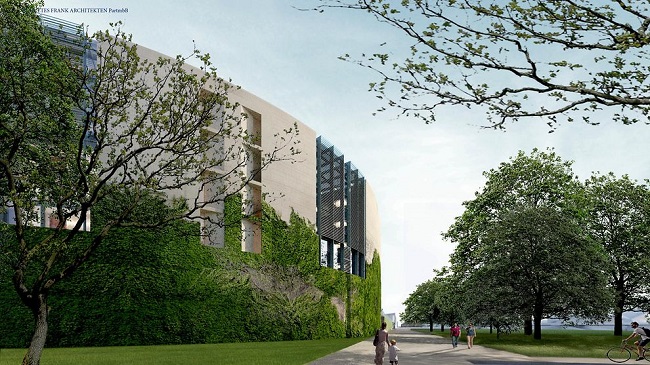
The German government and parliament are facing criticism over the construction of new residences
 |
Berlin - The German Federal Diet and the Chancellor's office are constructing new buildings because the existing ones no longer meet their needs, according to them. However, critics argue that the new constructions are unnecessary, overpriced, and that their construction is taking an unreasonable amount of time. At least the last of these complaints has now been confirmed. It has come to light that the completion of the new parliamentary building scheduled for this year has once again been postponed. Originally, it was supposed to be completed in 2013.
The Federal Diet is located in Berlin in a complex of buildings that has been developed since the 1990s around the historic Reichstag building. Over time, the complex has grown, partly due to the increasing number of deputies and their office staff. After the 2021 elections, a record 736 deputies sat in parliamentary seats. However, electoral reform limited their number, so in this year’s elections, Germans sent only 630 representatives to the Federal Diet.
Despite this, the Federal Diet insists on the need for more offices. In 2010, an extension was started next to the existing parliamentary building named after women's rights advocate Marie-Elisabeth Lüders. It was supposed to be completed within three years. However, employees of the Federal Diet and individual deputies will not be able to move into it this year as planned. "The offices will be ready for use by the end of the first quarter of 2026. Full handover is planned for the second quarter," stated the construction committee of the Federal Diet according to Politico’s website. The reason for the delay has been cited as deficiencies in the construction, particularly a leaky foundation.
The costs of the Federal Diet expansion project are also significantly higher than originally planned. Current figures are not available, but they are certainly double what they were fifteen years ago. At the time construction began, it was estimated at 190 million euros (now 4.6 billion CZK), last year it was already 420 million (10.2 billion CZK).
However, the extension of the Federal Diet is not the only new project that has recently drawn attention. Another is the extension of the nearby building housing the Federal Chancellor. The current seat of the government office, nicknamed "Waschmaschine" (washing machine) because of its shape, was built between 1997 and 2001. Due to the increasing tasks associated with multiple crises, its capacity is no longer sufficient, according to the office. Therefore, in 2023, construction of a new building started on the opposite bank of the Spree River. Current Chancellor Friedrich Merz inherited the project from his predecessor Olaf Scholz, but the first decision to build was made during the tenure of Chancellor Angela Merkel. Merz decided to continue with the project.
In the new building, which will be connected to the old one by two bridges, 400 offices are to be created. A heliport is planned to be relocated to its roof. A budget of 777 million euros (18.9 billion CZK) has been allocated, but German media expect that due to higher construction material costs, it may ultimately reach about one billion euros. The building is expected to be completed in 2027 or 2028, although some critics are already questioning this date.
The necessity of the new Chancellor's office building was previously questioned by the Federal Court of Auditors. It stated that it was not convinced by arguments claiming that even in the age of working from home or the possibility of shared desks, the new building is essential. The Chancellor's office, however, continues to assert that its work is specific and that the presence of employees on-site is necessary. Representatives of business associations also criticize the construction. "The expansion of the Chancellery is turning into a monument of waste of taxpayers' money," recently told Bild newspaper Thorsten Alsleben from the initiative Neue Soziale Marktwirtschaft.
The English translation is powered by AI tool. Switch to Czech to view the original text source.
0 comments
add comment










